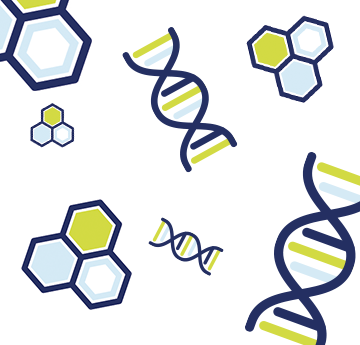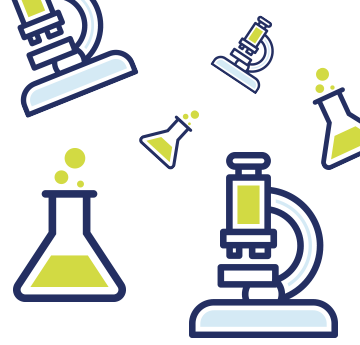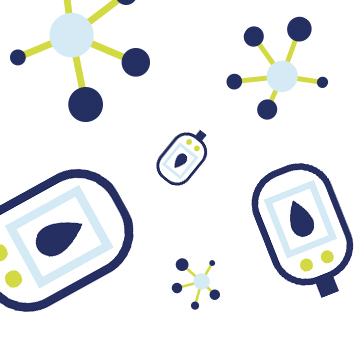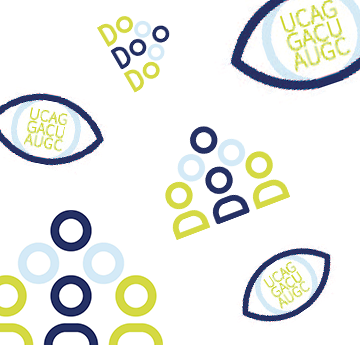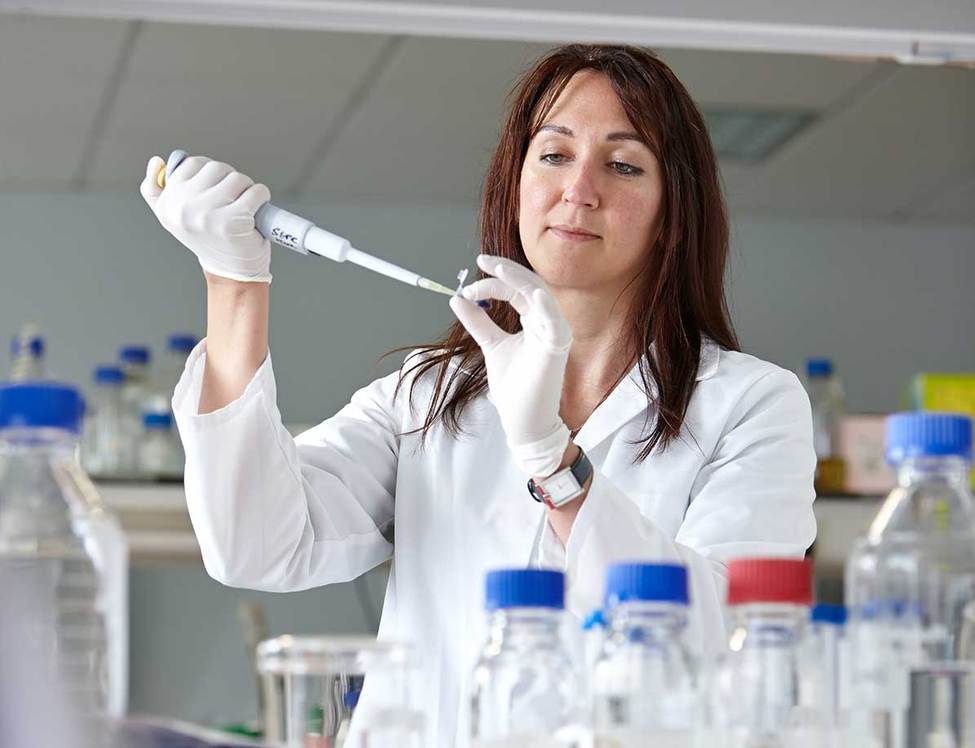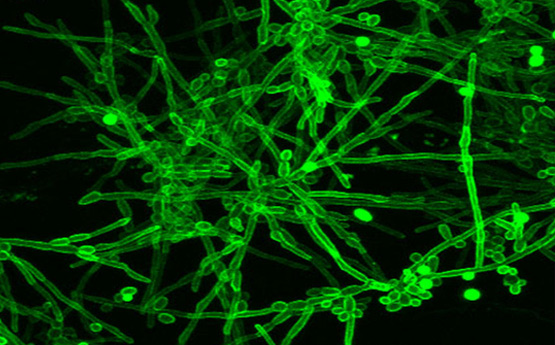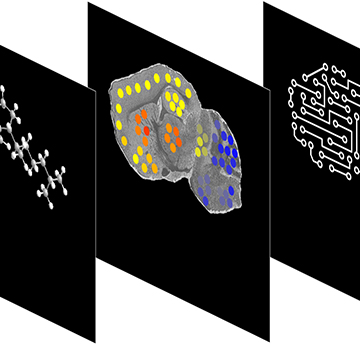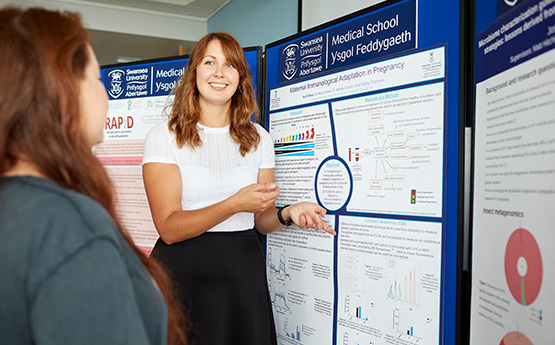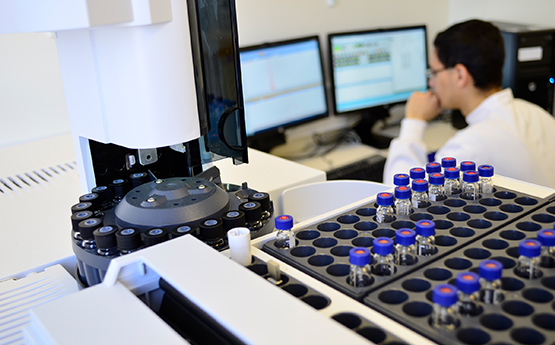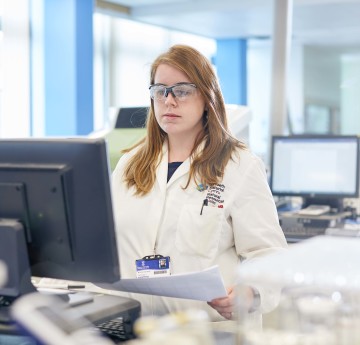The Medical School has a vibrant research community which attracts prestigious research funding and exciting PhD students. Recent major research funding awarded to the Medical School includes British Heart Foundation, UKRI, HDRUK, ADRN, MRC and Smart Expertise via Welsh Government.
We are committed to tackling global challenges and improving the health, wealth and wellbeing of society. The strength of the School’s research community is in its people and in its ambition for excellence. By working collaboratively across the Medical School’s four research themes, our talented researchers are able to push boundaries in their fields and innovation within, and beyond, the research community.
Based across the Institute of Life Sciences, Data Science and the Centre for NanoHealth at the Singleton Campus, and with close proximity to NHS Wales facilities and staff, our researchers are able to take full advantage of state-of-the-art facilities and inter-disciplinary expertise.
DNA Damage and the Safety of Nanomaterials
How do we assess the safety of nanomaterials? DNA damage in particular is a concern as it can lead to cancer development and so, assessing the DNA damaging capacity of a substance we are exposed to is vital. Professor Shareen Doak and her team have been developing tailored safety testing methods for nanomaterials and new, advanced non-animal tissue models. Our research has been utilized in numerous international regulatory risk assessment policy documents world-wide to adapt the DNA damage testing methodology so that it is appropriate for evaluating nanomaterials.
Control of Fungal Diseases
Every year fungal diseases across the world cost the agricultural industry millions in destroyed and damaged crops. Fungicides being less effective as resistance amongst target fungi grows, and the need to use evermore fungicides being used also result in ecological damage.
It was important to develop a fungicide which would do the job of destroying the target fungicide whilst not inhibiting processes within the host whether plant or animal. This step would result in a more effective fungicide and similarly reduce ecological damage.
Children and Young People’s Mental Health
Half of all mental health problems are established by the age of 14, and three quarters by 24 years of age. With increases seen in anxiety, depression, self-harm and suicide over the last decade our programme of multi-disciplinary research aims to transform the understanding, care and outcomes of young people with poor mental health. With over £3M in funding over the last five years, we lead the Adolescent Mental Health Data Platform and the Data Science theme of the Wolfson Centre for Young People’s Mental Health. Our work is developed in partnership with young people and our research rapidly translated into policy and practice including resources for schools and youth workers and guidance for practice.
Avoiding Unnecessary Medical Interventions
Many GP Surgeries across the UK have implemented software which identifies patients at high-risk of emergency admission to hospital, by calculating a "risk score" for every individual patient, based on previous admissions, underlying conditions and medications. This intervention – called predictive risk stratification - allows GPs to identify people who may benefit from an early intervention in order to prevent unplanned (emergency) admissions to hospital.
Cholesterol in Human Health and Disease
Cholesterol is a fatty substance made by all cells and found in some foods. As one of the most abundant molecules in the human body, it plays a vital role in how our body, and in particular, our brain, nerves and liver work. Excess cholesterol is linked to diseases of the 21st century including Alzheimer’s disease, liver disease and diabetes. A better understanding of how cells manage their cholesterol will lead to better diagnosis and potential treatments for these and other related diseases.
Exploring Global Problems
Exploring Global Problems is our podcast series, where academics from across the University talk about how their ground-breaking research help tackle a variety of global challenges.
The first series topics include Health Innovation, Climate Change, Green Energy and Human-centred digital technologies. Our contribution to this came from Dr Amira Guirguis whose research has explored the challenges of Novel Psychoactive Substances and how we detect them, our second episode came from Professor Paul Dyson who spoke about his work manipulating the genes of bacteria in order to potentially cure cancer.
Visit our podcast page to listen and subscribe to the series. We hope you enjoy!


